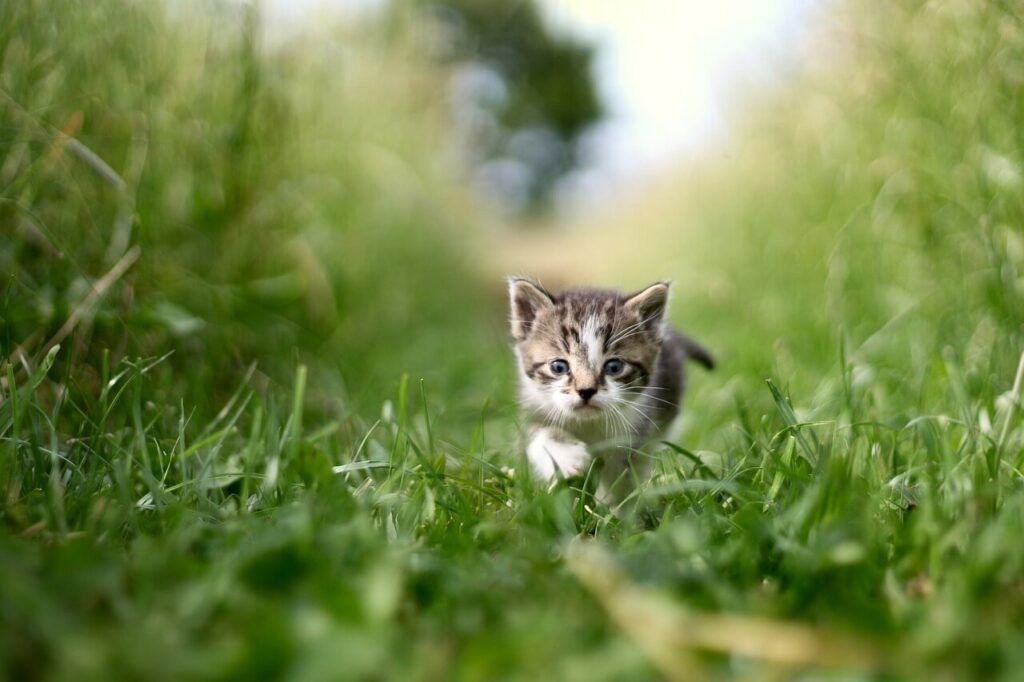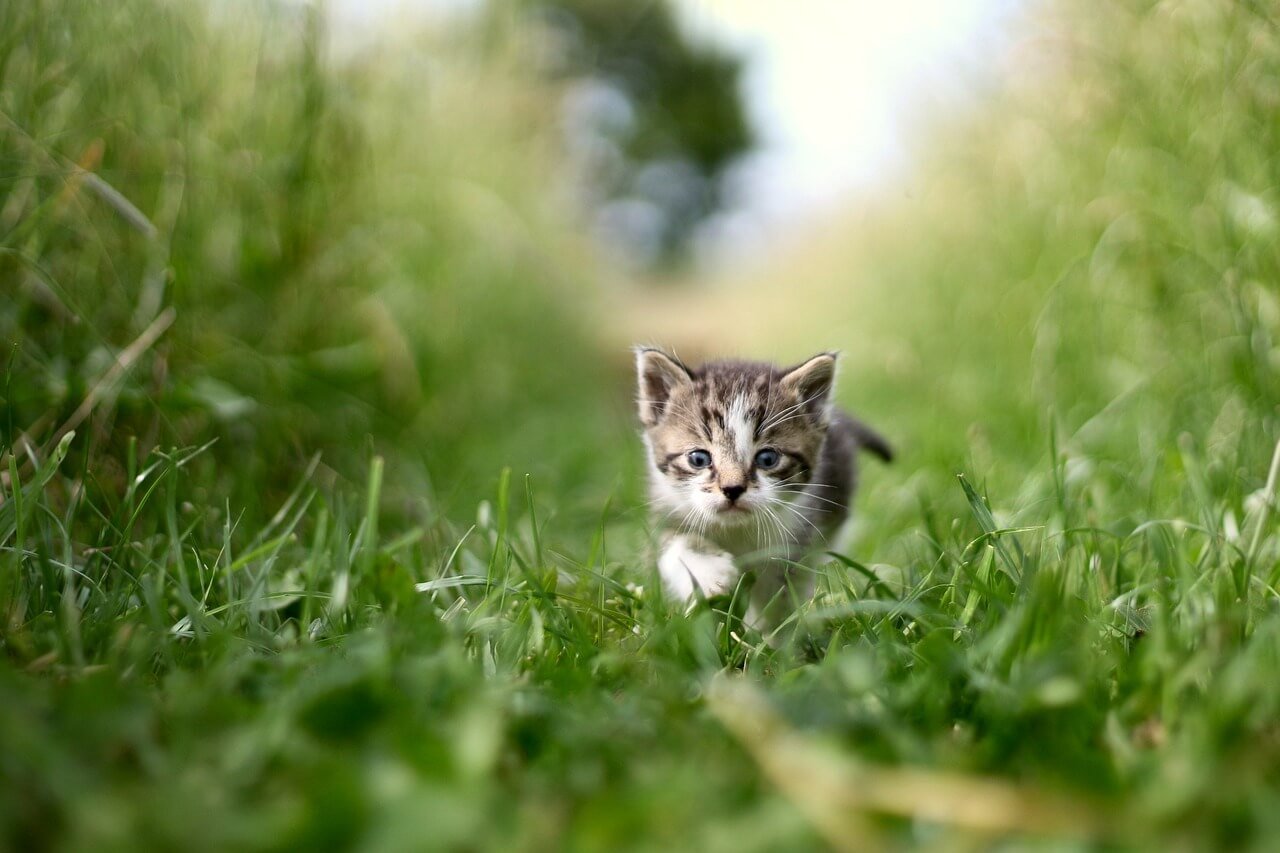Why Is My Cat Panting After Playing?
If you’ve ever noticed your cat panting after a playful session, you might have wondered whether it’s normal or cause for concern. Unlike dogs, who commonly pant to cool down, cats rarely exhibit this behavior under typical circumstances. However, there are several reasons why your feline friend might start panting after engaging in physical activity. Understanding the potential causes can help you determine whether it’s a harmless response or a sign of an underlying issue. In this blog post, we’ll explore the possible explanations, offer practical advice, and provide tips to ensure your cat stays healthy and happy during playtime.
Common Reasons Why Cats Pant After Playing
Cats panting after playtime can be caused by several factors. Below are some of the most common reasons why your cat might exhibit this behavior:
Exertion from Physical Activity : Just like humans, cats can become out of breath after intense physical activity. Playtime involving chasing, jumping, or running can lead to panting as their bodies work to recover.
Overheating : Cats don’t sweat like humans do, so panting can help them cool down when they get too warm during play.
Stress or Excitement : Emotional triggers such as excitement or anxiety can also cause panting. If your cat gets overly excited during play, this could be the reason.
Underlying Health Issues : In some cases, panting may indicate an underlying medical condition, such as respiratory problems or heart issues.
Environmental Factors : A hot or humid environment can make it harder for your cat to regulate their body temperature, leading to panting after exertion.
Understanding these potential causes can help you determine whether your cat’s panting is normal or if further investigation is needed. Always monitor your cat’s behavior closely to ensure their well-being.
How to Differentiate Between Normal and Abnormal Panting
Not all panting in cats is cause for concern. Here’s how you can tell the difference between normal panting and signs that something might be wrong:
Duration of Panting : Normal panting typically subsides within a few minutes after play. If it persists for an extended period, it could indicate a problem.
Frequency of Occurrence : Occasional panting after vigorous play is generally harmless. However, if it happens frequently or without apparent reason, consult your veterinarian.
Accompanying Symptoms : Look for other symptoms such as coughing, wheezing, lethargy, or loss of appetite, which may suggest an underlying issue.
Environmental Conditions : Consider whether your cat was exposed to high temperatures or humidity during play. These factors can contribute to panting.
Behavioral Changes : Notice any changes in your cat’s overall demeanor or activity levels. Sudden shifts could signal discomfort or illness.
By paying attention to these factors, you can better assess whether your cat’s panting is a natural response to play or a sign that professional advice is needed. Remember, early detection is key to addressing potential health concerns.
Check this guide 👉 Why Is My Cat Panting in the Car? Best 7 Expert Care Tips!
Check this guide 👉 Why Does My Cat Twitch in Their Sleep? Best 7 Expert Tips!
Check this guide 👉 Why Is My Cat Laying in the Litter Box? Best 7 Expert Tips!

Signs of Normal Panting | Signs of Abnormal Panting |
|---|---|
Stops within 5–10 minutes | Persists for more than 15 minutes |
Occurs after intense physical activity | Happens without obvious cause |
No additional symptoms | Accompanied by coughing or wheezing |
Cat appears relaxed afterward | Cat seems restless or uncomfortable |
Occurs in hot environments | Occurs in moderate conditions |
Tips to Prevent Excessive Panting During Play
If your cat frequently pants after playing, there are steps you can take to minimize this behavior. Here are some practical tips:
Limit Play Sessions : Keep playtime sessions short and engaging to avoid overexertion. Aim for multiple short sessions throughout the day rather than one long session.
Provide Cooling Options : Ensure your home has cool areas where your cat can rest. Fans, air conditioning, or cooling mats can help regulate their body temperature.
Monitor Environmental Conditions : Avoid playing with your cat during the hottest parts of the day, especially if you live in a warm climate.
Use Interactive Toys Wisely : Choose toys that encourage moderate exercise instead of overly stimulating ones that may tire your cat out too quickly.
Observe Your Cat’s Limits : Pay attention to your cat’s stamina and stop play if they show signs of fatigue.
By implementing these strategies, you can create a safer and more enjoyable play experience for your cat while reducing the likelihood of excessive panting.
When to Seek Veterinary Advice
While occasional panting is usually harmless, certain situations warrant a visit to the vet. Here’s when you should seek professional guidance:
Persistent Panting : If your cat continues to pant heavily for more than 15–20 minutes after play, it’s time to consult a veterinarian.
Labored Breathing : Difficulty breathing, rapid chest movements, or open-mouthed breathing are red flags that require immediate attention.
Changes in Behavior : Any sudden changes in your cat’s personality, appetite, or energy levels alongside panting should not be ignored.
History of Health Issues : Cats with pre-existing conditions such as asthma or heart disease are more prone to complications related to panting.
Unexplained Weight Loss : If your cat is losing weight unexpectedly and panting excessively, it could indicate a serious underlying issue.
Early intervention can prevent minor issues from escalating into major problems. Trust your instincts—if something feels off, don’t hesitate to reach out to your vet.
Signs Your Cat is Enjoying Playtime
Playtime should be a fun and enriching experience for your cat. Observing their behavior during play can help you gauge whether they’re truly enjoying it or if adjustments are needed. Here are some signs that indicate your cat is having a great time:
Ears Forward and Alert : When your cat’s ears are pointed forward, it shows they’re engaged and curious about the activity.
Tail Held High : A raised tail signifies confidence and happiness, indicating that your cat feels safe and content.
Pouncing and Leaping : These natural hunting behaviors suggest your cat is channeling their instincts in a positive way.
Soft Vocalizations : Gentle chirps or meows often accompany playful excitement, showing your cat is fully immersed in the moment.
Relaxed Body Language : A loose, fluid posture without signs of tension means your cat is comfortable and enjoying themselves.
If you notice these behaviors during play, you can rest assured that your cat is benefiting from the session. However, always remain mindful of their limits to avoid overexertion.
Ways to Make Playtime Safer for Your Cat
Ensuring your cat’s safety during playtime is crucial to prevent injuries or excessive strain. With a few simple precautions, you can create a secure environment for your feline companion. Consider the following tips:
Choose Age-Appropriate Toys : Kittens and senior cats have different energy levels, so select toys that match their abilities and preferences.
Avoid Small or Swallowable Parts : Toys with tiny components can pose a choking hazard, especially for curious cats who like to chew.
Supervise Interactive Play : Always keep an eye on your cat during play to intervene if they become overly excited or aggressive.
Limit Loud Noises : Avoid toys that make sudden or loud sounds, as they can startle sensitive cats.
Rotate Toys Regularly : Introducing variety keeps playtime fresh and prevents boredom, which can lead to destructive behavior.
By taking these steps, you can ensure that playtime remains a positive and safe experience for your cat. Remember, prevention is key to avoiding accidents or stress.
Benefits of Regular Play for Cats
Regular play offers numerous physical and mental benefits for cats, contributing to their overall well-being. Incorporating daily play sessions into your routine can significantly enhance your cat’s quality of life. Here’s how playtime positively impacts your furry friend:
Improved Physical Fitness : Play helps maintain a healthy weight, strengthens muscles, and promotes cardiovascular health.
Mental Stimulation : Engaging activities challenge your cat’s mind, reducing boredom and preventing behavioral issues.
Stress Relief : Play acts as an outlet for pent-up energy, helping to alleviate anxiety and promote relaxation.
Bonding Opportunities : Interactive play strengthens the bond between you and your cat, fostering trust and companionship.
Instinctual Satisfaction : Activities like chasing or stalking mimic hunting behaviors, fulfilling your cat’s natural instincts.
Incorporating regular play into your cat’s daily routine not only enhances their physical and mental health but also enriches your relationship with them. Prioritizing playtime ensures a happier, healthier life for your beloved pet.
FAQ
Is it normal for cats to pant after playing?
Yes, it’s relatively normal for cats to pant briefly after intense physical activity. However, prolonged or frequent panting may indicate a problem.
Can stress cause my cat to pant?
Absolutely. Stress, excitement, or anxiety can trigger panting in cats. Try to identify and address the source of stress.
How can I cool down my cat after play?
Provide access to cool spaces, offer fresh water, and use fans or air conditioning to lower the room temperature.
What should I do if my cat’s panting doesn’t stop?
If panting persists for more than 15–20 minutes or is accompanied by other symptoms, contact your veterinarian immediately.
Are certain breeds more prone to panting?
Yes, flat-faced breeds like Persians may struggle more with breathing and panting due to their facial structure.
Ensuring Your Cat’s Well-Being Through Observation and Care
Understanding why your cat pants after playing is essential for ensuring their health and happiness. By recognizing the difference between normal and abnormal panting, taking preventive measures, and knowing when to seek veterinary advice, you can provide the best possible care for your feline friend. Remember, every cat is unique, and staying attuned to their individual needs will strengthen the bond you share. With patience, observation, and love, you can keep your cat active, healthy, and full of life for years to come.
Do Cats Have Taste Buds? Best 7 Expert Tips! – Discover how cats experience flavors and why their taste is so unique.
Do Dogs Have Taste Buds? Best 7 Expert Tips! – Discover how dogs experience taste, their preferences, and what it means for their diet and health.
Can Cats Taste Sweet? Best 7 Expert Tips! – Discover why cats can’t taste sweetness, how it affects their diet, and tips to keep them healthy and happy.
Can Dogs Taste Sweet? Best 7 Expert Tips! – Discover how dogs perceive sweetness, which foods are safe, and tips to manage their sweet cravings responsibly.





